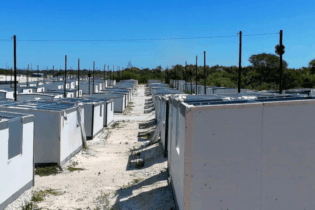Delays in the implementation of the country’s electricity master plan, the Integrated Resources Plan 2010 (IRP 2010), showed a lack of leadership and would place an economic recovery in jeopardy, say experts.
Professors Ernst Uken and Philip Lloyd of the Cape Peninsula University of Technology told Parliament’s portfolio committee on energy last Wednesday they could only give the Department of Energy a mark of 37% in implementing the IRP. The IRP, which is supposed to be updated every two years, aims to get the country to produce an extra 40 000MW of electricity through various means, such as nuclear, renewable and coal power, by 2030. In their analysis of the Department of Energy’s performance, they pointed out the Integrated National Electrification Programme had only connected 141,390 homes to the grid, which was below its target of 150 000 homes. Independent power producers were supposed to have begun producing 1,000MW of electricity by March, but this was not achieved as they were still awaiting agreements from the Department of Energy, and for the Treasury’s approval for issuing guarantees. The Renewable Energy Finance and Subsidy Office stopped funding in order to halt double dipping by entrepreneurs. “While we welcome the establishment of the National Nuclear Energy Executive Co-ordination Committee, it has not met yet, and the implementation of all the other programmes are falling behind,” said Mr Lloyd. He said there is a direct link between a country’s gross domestic product (GDP) growth and its energy consumption, and South Africa was not keeping up with the demand of a growing economy. “So far only 500MW has come online and that just keeps up with demand. If people are going to invest in the economy then we have to have increase our electricity generation,” Mr Lloyd said.He praised Eskom for “doing a superb job” of keeping the lights on during the 2008 energy crisis, but this did not mean it was helping the economy grow.
“I have come across a large number of infrastructure projects that have been put on hold or cancelled because Eskom cannot give them the electricity they need. We must not kid ourselves in thinking that keeping the lights on will grow the economy,” he said. Mr Lloyd said this would have an effect on job creation. The two professors also criticised the Department of Energy’s long-term vision and strategic planning, saying it was not doing enough or thinking through its projects properly. They said the department was often sidetracked when it started a project. “They were diverted when they started promoting the domestic use of smokeless coal. There were some interesting parties that I went to, but nothing really happened after that,” Mr Lloyd said. Mr Uken pointed out the solar water-heater rebate was not thought out properly. “When it was first done the payback period for buying a solar water geyser was two-and-a-half years. Now it is 10 years and people are quite rightly asking if such a geyser would actually last that long. Whoever was doing his homework on this did not think this through,” he said. Source: Business Day





